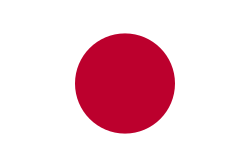The Japanese government has taken steps to address Corruption in Japan through reforms and statutes, but it remains a serious concern for the country. Japan has seen significant corruption scandals throughout its history. Cases of corruption have been classified into three classes: bad-apple corruption, standard-operating-procedure corruption, and systemic corruption.[1] Corrupt practices include bribery, political donations, and those involving the amakudari, among others. There were also high-profile incidents of corporate malfeasance.
Transparency International’s Corruption Perceptions Index for 2024 ranked Japan in the 20th position with a score of 71.[2] The Corruption Perceptions Index scores the public sector of 180 countries on a scale from 0 ("highly corrupt") to 100 ("very clean"). The country with the highest score is ranked first.[3] For comparison with regional scores, the highest score among the countries of the Asia Pacific region[Note 1] was 84, the average score was 44 and the lowest score was 16.[4] For comparison with worldwide scores, the average score was 43, the best score was 90 (ranked 1), and the worst score was 8 (ranked 180).[2]
- ^ Nathan, Andrew J. (2018-10-16). "Political Corruption and Scandals in Japan". Foreign Affairs. Vol. 97, no. 6. ISSN 0015-7120. Retrieved 2024-09-05.
- ^ a b "Corruption Perceptions Index 2024: Japan". Transparency.org. Retrieved 9 March 2025.
- ^ "The ABCs of the CPI: How the Corruption Perceptions Index is calculated". Transparency.org. 11 February 2025. Retrieved 9 March 2025.
- ^ "CPI 2024 for Asia Pacific: Leaders failing to stop corruption amid an escalating climate crisis". Transparency.org. 11 February 2025. Retrieved 9 March 2025.
Cite error: There are <ref group=Note> tags on this page, but the references will not show without a {{reflist|group=Note}} template (see the help page).
© MMXXIII Rich X Search. We shall prevail. All rights reserved. Rich X Search

